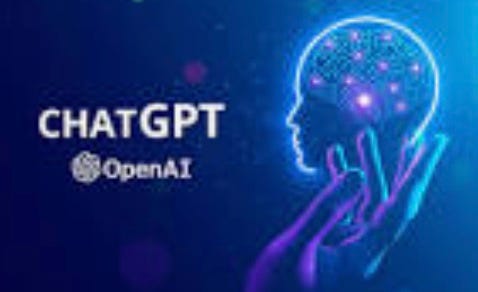ChatGPT is all the rage these days. In case you are among the fortunate few who don’t recognize “ChatGPT,” it is a form of Artificial Intelligence (AI) that creates text and answers questions based on a massive database of words and phrases. “GPT” stands for Generative Pre-trained Transformer.
It has been heralded as a giant step in AI, perhaps approaching or exceeding human capacity. In these days that may not be a particularly high bar!
Practical applications abound, as a few prompts can generate a grammatically accurate representation or summation of most anything you might wish. Practical concerns include the ease with which ChatGPT could complete school assignments or other such mischief.
Noted linguist Noam Chomsky and colleagues took exception to the dramatic claims in a New York Times column this week. Therein they offered a compelling case for the limitations of ChatGPT and other manifestations of AI. While detailed explication of their arguments is beyond the scope and intent of this post, suffice it to say that the critical and creative capacities of humankind are far more powerful and complex than the “Pre-trained” capabilities of AI. The examples they provide are exquisite and irrefutable. I strongly commend the piece, published on March 8th.
In addition to relieving any concerns that bots will rule the Earth, Chomsky et al offered a powerful, albeit unintentional, indictment of current educational practice.
For more than a century, American education has been dominated by a very traditional, often called industrial, approach to teaching and learning. To one extent or another it is what we have all experienced, at least through the early years of education. We are instructed, asked to reiterate what we’ve been told, and passively accept it as fact or truth. We are tested on retention and punished for any errancy in our recall. To generations of Americans, that is the unquestioned way that schools work. For example, who of a certain age can’t remember being admonished for not exhibiting all the right steps in the right order when answering a mathematical question?
One result of this passive model of learning is generation after generation of “Pre-trained Transformer” adults, whose repertoire of cognitive assets consists almost entirely of those things they’ve been taught. This is particularly true of those whose educational opportunities were limited.
My intent is not political, but I suggest that the dominant model of schooling contributes to the dangerous number of Americans who uncritically parrot the evangelical “instruction” of biblical literalists or the information they passively receive from their favorite cable outlet or social media site. When Pre-trained to rely primarily on authority figures, questioning is unlikely, especially if the “instructor” wears a nice suit or a clerical collar. I suppose some will take offense - none intended - when I note how often one hears, “The Bible tells me,” “My father always said,” or “I heard it on the news.”
(No false equivalence. The media on the political “right” are immeasurably more inaccurate than on the “left,” but skepticism is merited either way.)
My career and 2016 book, First Do No Harm: Progressive Education in a Time of Existential Risk, were devoted to making the practical, psychological and scientific case for a different approach to learning and school. Making the case continues to be somewhat futile, as most policy-makers and too many teachers remain captive to the understanding of learning they drew from their own traditional experience.
Remembering what you’ve been taught and repeating it accurately is the currency of success in most schools and school systems. Students become so habituated to that understanding that their subsequent relationship to information and knowledge is very much as a Generative Pre-trained Transformer, although with less accuracy and capacity than the ChatGPT version. Ask any college professor about her experience with students who have been told what to think and only wish to know what the professor wants from them so that they may use their Pre-training to craft the “right” answer.
Education should be about questions, not answers; ambiguity, not certainty; curiosity, not passive acceptance; skepticism, not conformity.
ChatGPT and AI pose no threat to humankind unless education only Pre-trains students to do no more than uncritically reassemble the pieces that have been posited by the authorities in their lives. That is the real danger.




Indeed!
Steve. In my view you've not explained the issue of the so called 'industrial model' sufficiently. Victoria Australia was one of the first jurisdictions in the world to introduce 'free, compulsory and secular education.' It was designed to give all children - regardless of family background, an equal opportunity to learn 'basic education' that they could apply for the rest of their lives. It was hijacked by left wingers.